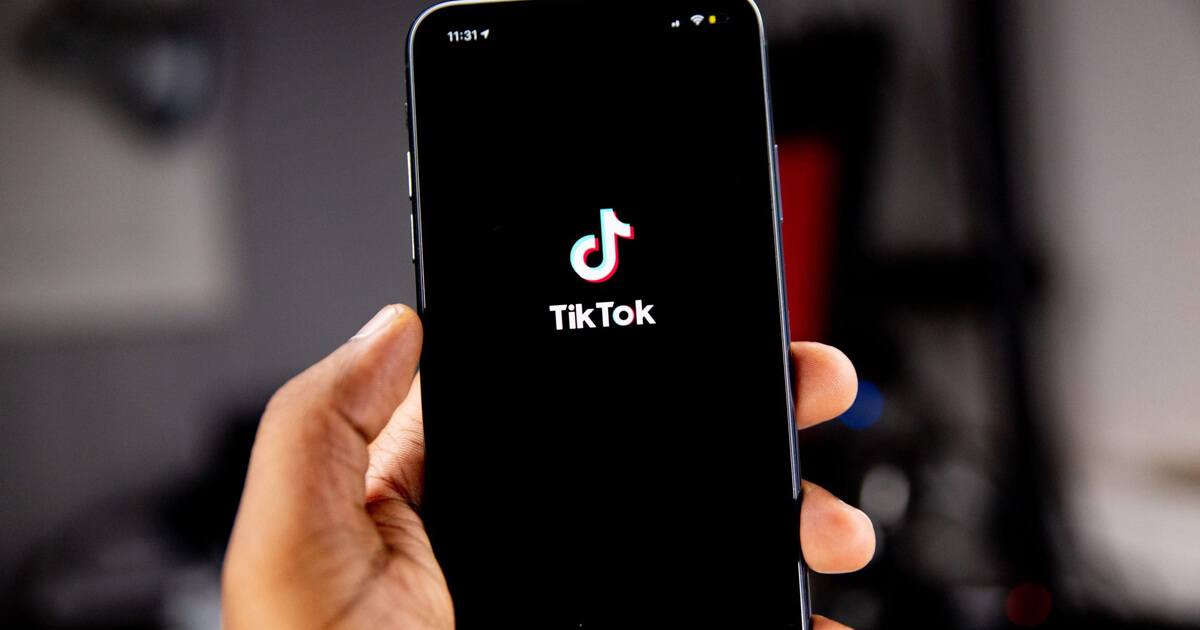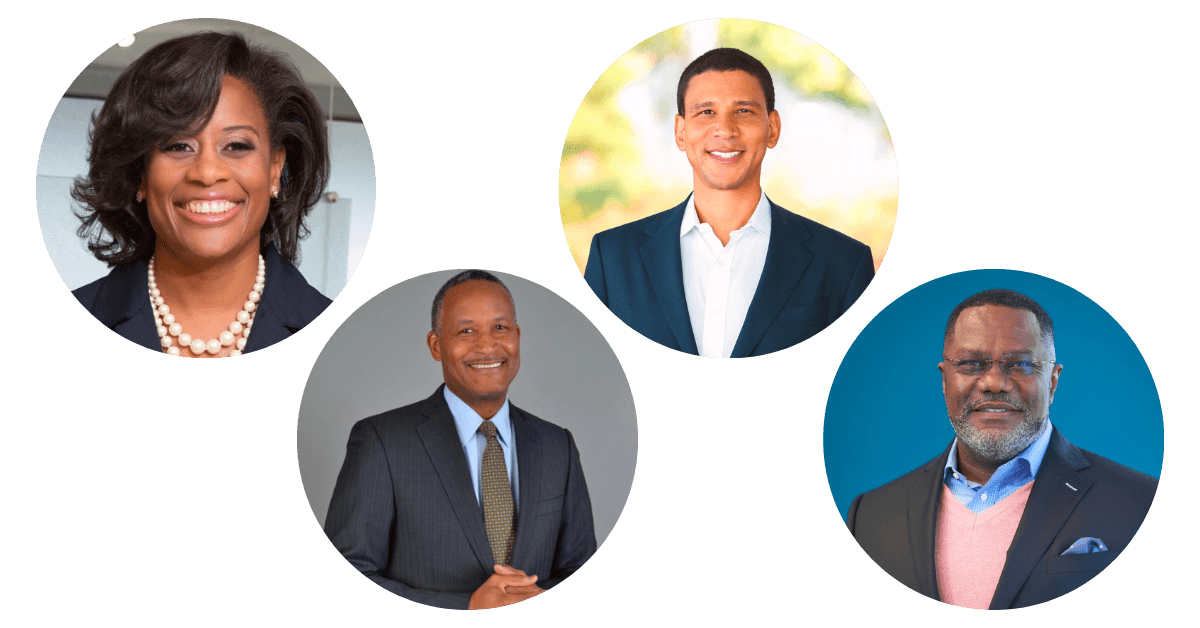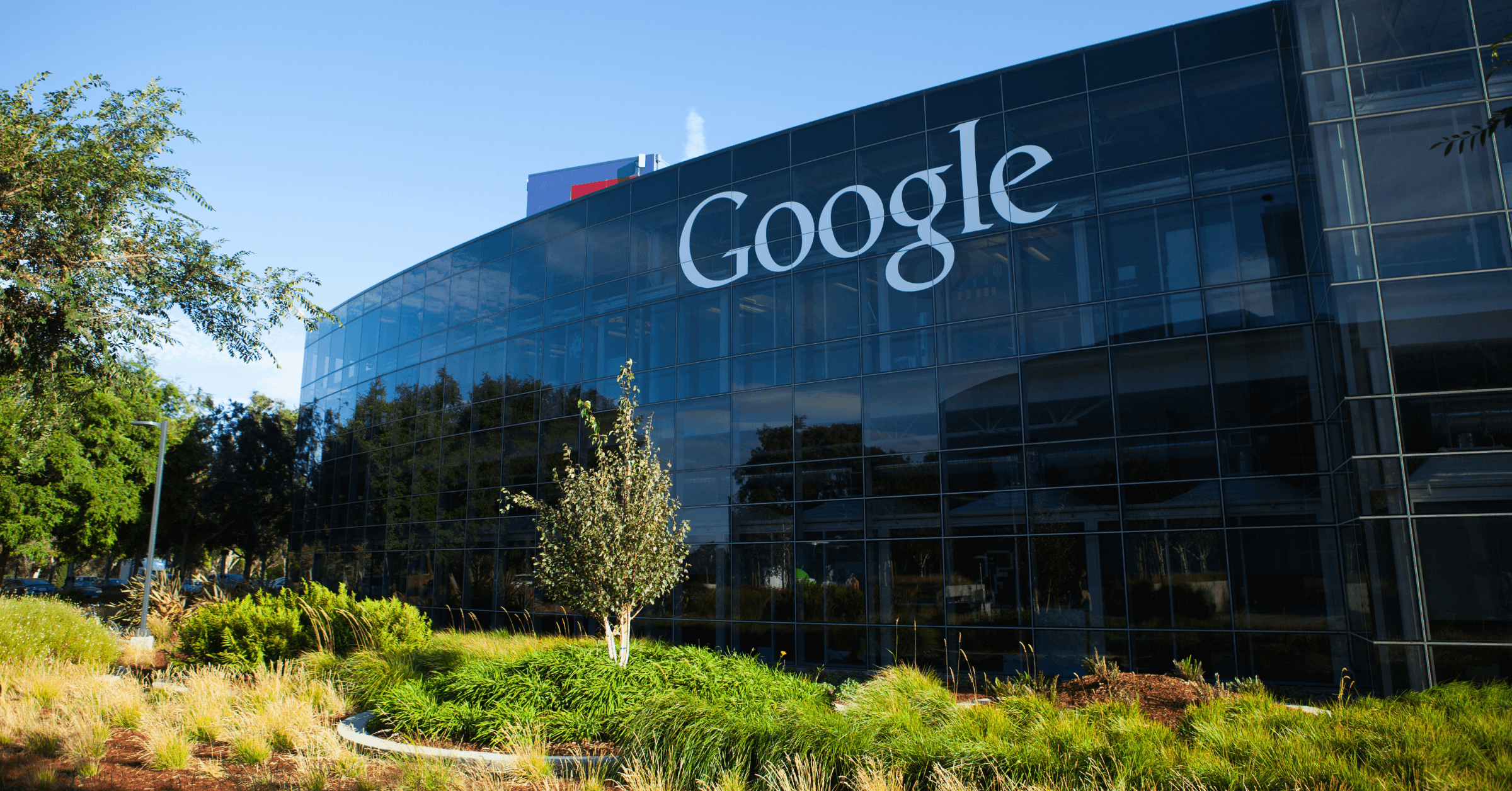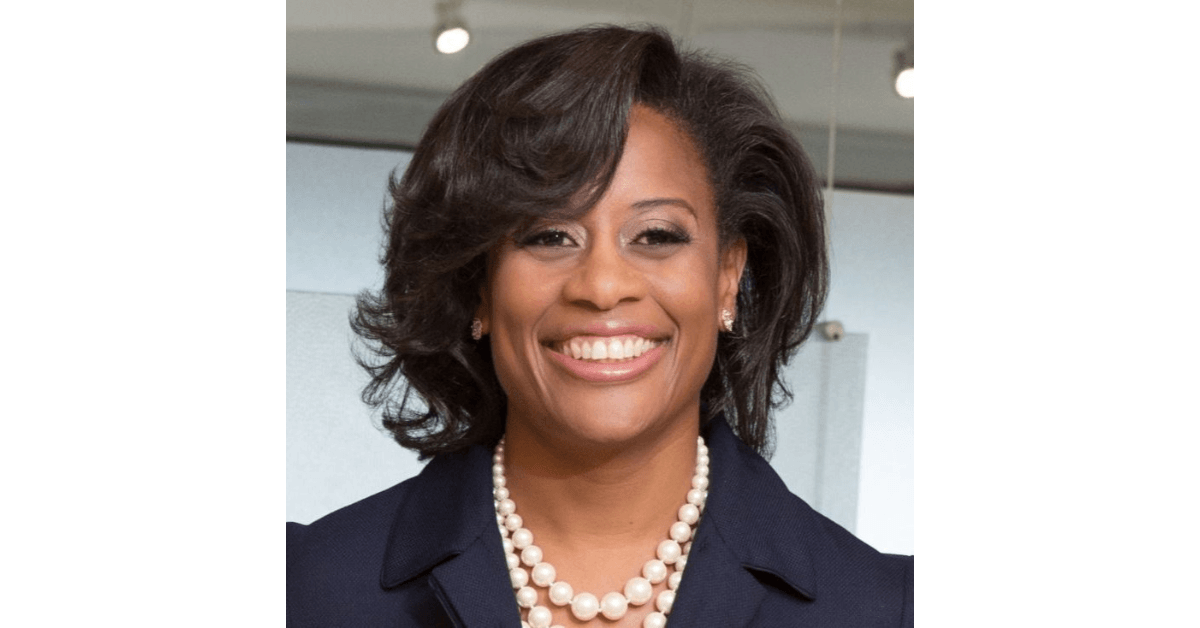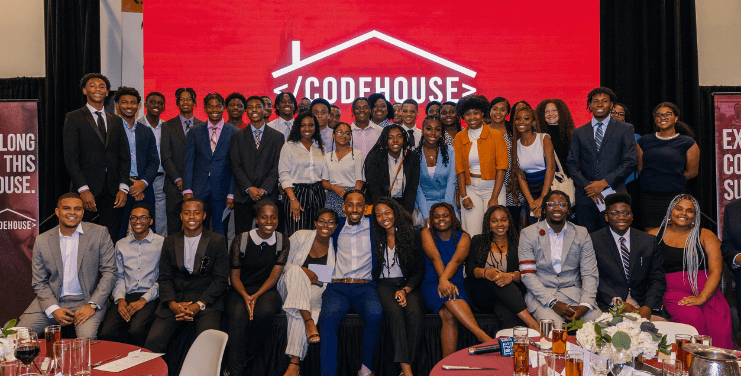Ranking Digital Rights (RDR), an organization that evaluates companies on digital rights governance, freedom of expression and privacy, released a report last week on the Chinese-based social media platform TikTok, its parent company ByteDance, and its Chinese counterpart, Douyin.
Among a number of concerning findings, the report found TikTok’s policies do not adhere to the racial equity commitments the company touted last summer.
Ranked by RDR’s measures of digital rights governance, freedom of expression and privacy, here is how the Chinese companies compare to their U.S. competitors:
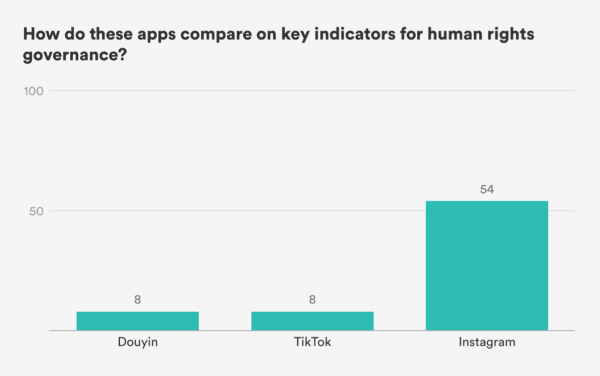
Source: Ranking Digital Rights, Quick Study: ByteDance, TikTok, and Douyin. The values shown above represent averages of the indicator “Human Rights Governance.” The full list of indicators may be found in RDR’s full report.
U.S. companies like Instagram vastly surpass TikTok in regard to key indicators that signal promoting both racial equity and human rights, despite TikTok’s promises to do so.
According to the report, Instagram conducts human rights impact assessments in ‘some key areas’, such as how the company enforces its policies that impact freedom of expression, information and privacy.
“TikTok has made pledges to treat users and employees equitably, but it doesn’t seem to go deeper than just words,” Ellery Biddle, Project Director at RDR, told The Plug. “We want to see a company that’s fully transparent about how its algorithms work and be fully transparent about how it tests them out to see what harms they might bring on people.”
Just last month, Black creators on the app staged a protest due to its algorithm’s tendency to promote white users who copied viral dances choreographed by Black creators and profited from imitating them.
“It’s a racist algorithm,” Biddle said. In a recent video, Black TikTok creator, Ziggy Tyler showed how TikTok’s algorithm flagged the phrase “Black Lives Matter” as ‘inappropriate content’ and hate speech, but did not flag the phrase “white supremacy.”
When Tyler attempted to add “Black” to his creator marketplace bio, TikTok did not allow for him to publish the change. TikTok claimed it was a fault in its hate speech-detection algorithm.
“TikTok provides a description of its algorithmic recommendation system, but does not offer users enough information to hold the company accountable for the outcomes of its design decisions,” the study said.
This is an ongoing problem for the social media platform. Users of the social media platform are familiar with its For You page, which TikTok defines as a recommendation feed that is personalized to each user and is based on how the user interacts with videos on the app.
After the hashtags #GeorgeFloyd and #BlackLivesMatter were hidden from the app’s For You page last summer, public pressure prompted TikTok to issue an apology. The statement included a commitment to promoting racial equity in their workplace and on the app.
TikTok ruthlessly collects user data and monetizes it without disclosing what they use the data for or why they collect so much, according to Biddle.
RDR identifies this as a problem. According to their report, neither of ByteDance’s subsidiaries committed to protecting or promoting human rights online nor did they commit to conducting human rights impact assessments, something RDR identifies as ‘a key tool for companies seeking to prevent their products and services from causing human rights harms’
The massive amounts of data collected by TikTok could be used for good or nefarious purposes; without increased transparency, the public may never know what the harvested information is being used for.
While the absence of policies at TikTok to act on its promises regarding racial equity is concerning, and it should release data on its business practices and share what they are doing to uphold human rights online, Biddle also said the company should be credited for making the commitments in the first place.
TikTok said in its “One Year Later” blog post that the company is still working toward promoting racial equity on the site. After establishing the first TikTok for Black Creatives accelerator and the @BlackTikTok page, the social media site claims it is effectively pursuing the goals it set out for last summer.
Additionally, the post gives details on the TikTok Inclusion Summit, which equipped employees and company leaders with the tools to promote diversity and inclusion across the business.
Company leadership at TikTok also created the Diversity and Inclusion Council, whose purpose is to advocate for a diverse community on the app and in TikTok’s workplace, similar to what a Chief Diversity Officer would aim to do. The installation of the Council is an extension of the company’s commitment to being held accountable in the pursuit of promoting equity for minority groups.
RDR’s report and Tyler’s recent exposure of racial biases in TikTok’s algorithm create a cloud of uncertainty that contradicts TikTok’s commitments to diversity and inclusion. Without increased transparency from TikTok’s leadership, that uncertainty may remain.
U.S. competitors to TikTok, like Facebook, Instagram and Youtube, each have pledged to uphold human rights laws such as those measured by RDR and been transparent in their efforts to rid their sites of racial biases.
However, despite committing to fostering a safe and equitable environment for Black creators and employees, TikTok has not followed its competitors by making the human rights pledge and falls behind in regard to transparency.
Sponsored Series: This reporting is made possible by the The Ewing Marion Kauffman Foundation
The Ewing Marion Kauffman Foundation is a private, nonpartisan foundation based in Kansas City, Mo., that seeks to build inclusive prosperity through a prepared workforce and entrepreneur-focused economic development. The Foundation uses its $3 billion in assets to change conditions, address root causes, and break down systemic barriers so that all people – regardless of race, gender, or geography – have the opportunity to achieve economic stability, mobility, and prosperity. For more information, visit www.kauffman.org and connect with us at www.twitter.com/kauffmanfdn and www.facebook.com/kauffmanfdn.

